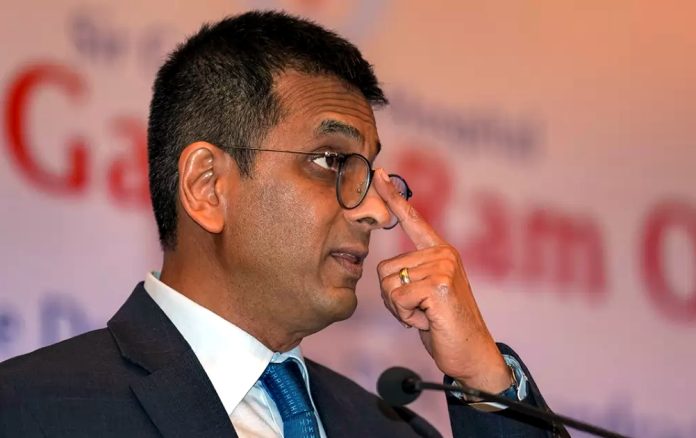NEW DELHI, June 25: Announcing the commencement of the Lok Adalat on July 29, Chief Justice of India DY Chandrachud on Tuesday appealed to the citizens to take advantage of the situation and said that they are all concerned about the large backlog of cases.
Click here to connect with us on WhatsApp
In a message, CJI Chandrachud said, “From July 29 to August 3, the Supreme Court is organising a special Lok Adalat. This is part of a series of activities which the Supreme Court is observing to commemorate the 75th year since the establishment of the Apex court.”
“Most significantly, we are all judges, as people dedicated to the institution of justice, concerned about the large backlog of cases. The Lok Adalat represents a very informal and technology-based solution to resolve cases involving our citizens to their satisfaction in a purely voluntary consensual mode,” the CJI added.
Further, he appealed to all the citizens, lawyers and advocates to take advantage of the opportunity to resolve the cases quickly.
“Therefore, on behalf of all my colleagues and the staff of the Supreme Court, I would appeal to all the citizens who have cases before the court and to all lawyers and advocates on record to take advantage and benefit of this opportunity in an attempt to resolve the cases speedily in a manner that is acceptable to all contesting parties,” CJI Chandrachud said.
The Lok Adalat is one of the alternative dispute redressal mechanisms, it is a forum where disputes pending in the court of law or at the pre-litigation stage are settled or compromised amicably.
Lok Adalats have been given statutory status under the Legal Services Authorities Act, 1987. Under the said Act, the award (decision) made by the Lok Adalats is deemed to be a decree of a civil court and is final and binding on all parties, and no appeal against such an award lies before any court of law. If the parties are not satisfied with the award of the Lok Adalat, though there is no provision for an appeal against such an award, they are free to initiate litigation by approaching the court of appropriate jurisdiction by filing a case by following the required procedure, in exercise of their right to litigate.
The benefits of a special Lok Adalat include swift compromise and settlement of disputes, final and executable awards, cost-effective resolution of disputes and a refund of court fees.
Cases having elements of settlement, including those relating to matrimonial and property disputes, motor accident claims, land acquisition, compensation, service, and labour, which are pending before the Supreme Court, would be taken up to facilitate speedy disposal. (Agencies)


